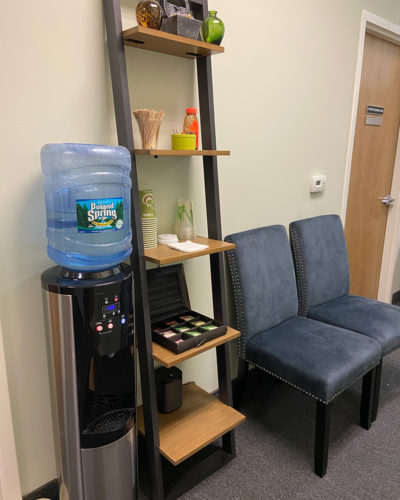Frequently Asked Questions
Therapy is warranted if your child’s difficulties are interfering with school, friendships, or family relationships or if their degree of suffering is intense and occurring most of the day on more days than not. If you are unsure, please ask when you call our office to schedule your intake.
Therapy involves a commitment of time, effort, and finances. Entering into a therapeutic relationship is a type of contract, and we find that individuals are most successful when they understand this from the very beginning and are willing and able to make these commitments and do the therapeutic work.
For younger children, many parents find the book Somebunny to Talk To helpful for introducing the idea of therapy. For older children and teens, it can be helpful to explain that therapy might be different than their preconceived notions. Most children find that therapy tends to be very interactive, engaging, and fun with the clinician an active participant.
Explaining this to your child or teen can help ease the process of initiating therapy. Additionally, it can be helpful for teens to understand that therapy is a confidential place for them to discuss whatever they want without their parents in the room.

The waiting room at our Chester, NJ location
For children and teens, the first intake session is with the parents or guardians only. At this session we will discuss your treatment goals. Additionally, we will obtain history of the current problem as well as a thorough developmental, social, health, and educational history.
For adults, please plan on attending yourself. In certain situations an individual might find it helpful to bring another informant along to the intake, which is also a possibility. This will be discussed on the initial phone call.
Therapy is very specific to the individual and the circumstance, so the structure of the sessions varies case by case. For younger children, parents typically attend for a few minutes at the start or end of the session to provide feedback and receive brief updates on treatment progress or homework for the week. During the child’s portion of the session, they learn coping skills through therapeutic forms of play, art, or psychoeducational reading and activities.
For older children and teens, parents tend to be less directly involved in the sessions in order to foster the older child’s/teen’s independence and to build trust with the therapist. During these sessions, there is often a mixture of structured and unstructured therapeutic activities. With the child’s/teen’s permission, parents are welcome to schedule parent sessions with the clinician or to join for a part of the child’s/teens session.
For adults, we find that most patients can tolerate a 45-minute session of talk therapy that includes specific interventions aimed at improving their symptoms, relationships, and quality of life.

One of the therapy offices at our Chester, NJ location
In an ideal course of therapy, measurable treatment goals are made at the intake session. The ongoing sessions during the active phase of therapy tend to be once a week (twice a week in certain circumstances) until the clinician and patient agree that treatment goals are met. At this point, treatment typically moves to the maintenance phase, which is a frequency of every other week.
If goals are maintained and no new goals are identified, treatment then moves to a monthly schedule and the work of saying goodbye begins. The therapeutic process can take anywhere from six months to many years, depending on the individual.
If you miss a session for any reason (i.e., illness, scheduling conflict, forgot to attend, etc.), you will be offered a make up session before your next scheduled session.
If it is not possible to make up your missed session before your next session, we will work together to ensure that you get four sessions in for the month to maintain your therapeutic dose of treatment. Therapy is a commitment and your clinician saves a time slot just for you each week. Please provide at least 48-hour notice if you know in advance that you will be unable to attend at your scheduled time.
In the event that you are unable or unwilling to reschedule the missed session, you will be charged the full session fee. Exceptions to this policy are vacations that are announced well in advance and extended illnesses.
West Morris Psychological Associates is an out-of-network provider. We do not contract directly with insurance companies, but many people do find that our services are covered through their out-of-network benefits.
Payment is made to West Morris Psychological Associates at the time of service. We provide you with a statement, which you can submit to your insurance provider for reimbursement.
We recommend that you contact your insurance company prior to your initial appointment with us so that you are aware of your coverage. At times you may be required to obtain preauthorization by your insurance provider for services at West Morris Psychological Associates; your therapist will be able to complete the required paperwork.
Accepted forms of payment: check, cash, and most major credit cards.
